Nihilism is a philosophy that is defined as, “the rejection of all moral and religious principles, in the belief that life is meaningless.” The great Friedrich Nietzsche has been one of the most famous proponents of nihilism. His take on nihilism has been more optimistic and is reflected upon the works of auteurs like Michael Haneke and Gaspar Noe. Nihilism is a theme that has fascinated me unlike any other in cinema. Many filmmakers have explored the various facets of it, in different forms and some of them are considered to be among the finest works of cinematic art ever produced. With all that said now, let me take you to a list of top movies about nihilism ever. You can watch some of these best nihilistic movies on Netflix, Hulu, or Amazon Prime.
15. American Psycho (2000)
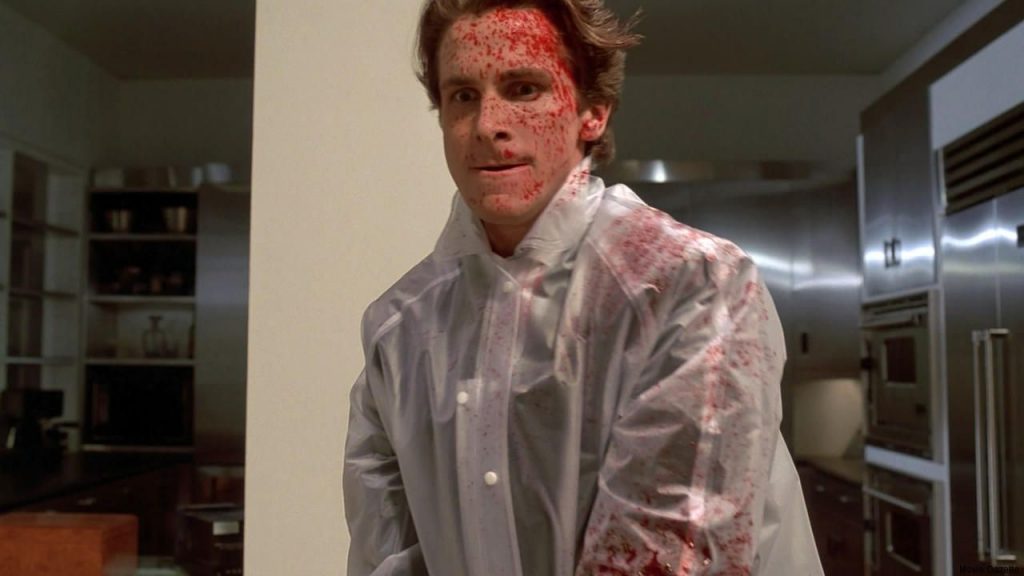
I am still unsure about my thoughts on ‘American Psycho’. I wouldn’t say it’s a film that has grown on me either but the film certainly opens up a lot of spaces for questions and thoughts. Patrick Bateman is a highly successful investment banker who hides his deranged, psychopathic alter ego from the corporate fraternity. His bizarre fantasies explode and culminate in a violent bloodshed. Bateman is a sadist and a perverse individual with absolutely no empathy towards any kind of living substance. The film portrays him as a nihilist; an utterly despicable, unapologetic human being beyond, devoid of any kind of redeeming qualities.
Read More: Best Death Movies of All Time
14. I Stand Alone (1998)

Gaspar Noe’s feature film debut is a fiercely bold, strikingly original piece of cinema that manages to devastate you psychologically in ways that could hardly be put into words. ‘I Stand Alone’ focuses on a man named “the butcher” who, after imprisonment for assault, begins to suffer from an emotional meltdown as he struggles connecting to the society. Noe crafts a fascinating character study of a man so rotten inside; his wounds irreparable, his emotions withering away, his mind reeling under madness. There is no sense of hope in his life and Noe gives us a glimpse of a wretched world, perverted and depraved.
Read More: Best True Story Movies of All Time
13. Synecdoche, New York (2008)
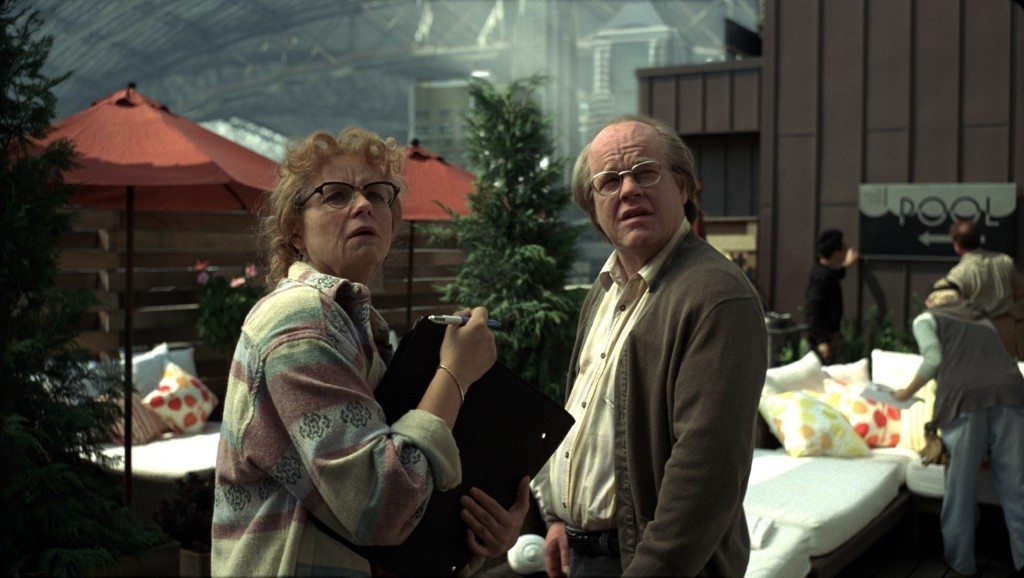
Charlie Kaufman‘s films have this endearing quality that just wraps you up emotionally, failing to let go by. ‘Synecdoche New York’ is arguably his most personal work; one that deserves to be felt, understood and experienced. The story of Caden Cotard is a deeply tragic one. His inner world is tormented by unfulfilled desires and ambitions as he finds himself ensnared in the brutal realities of life, something he has evaded throughout his life in the name of feeling important. His life begins to blur the boundaries between fiction and reality as he commits himself to his play that, he demands, requires “brutal honesty”. The way Caden’s whole life falls apart is terrifying and sad as he finds himself witnessing the death of his loved ones; people, whose existence he was emotionally unaware of. It’s sad, depressing and frightening at times yet so deeply human.
Read More: Best Spy Movies of All Time
12. Dr. Strangelove (1964)
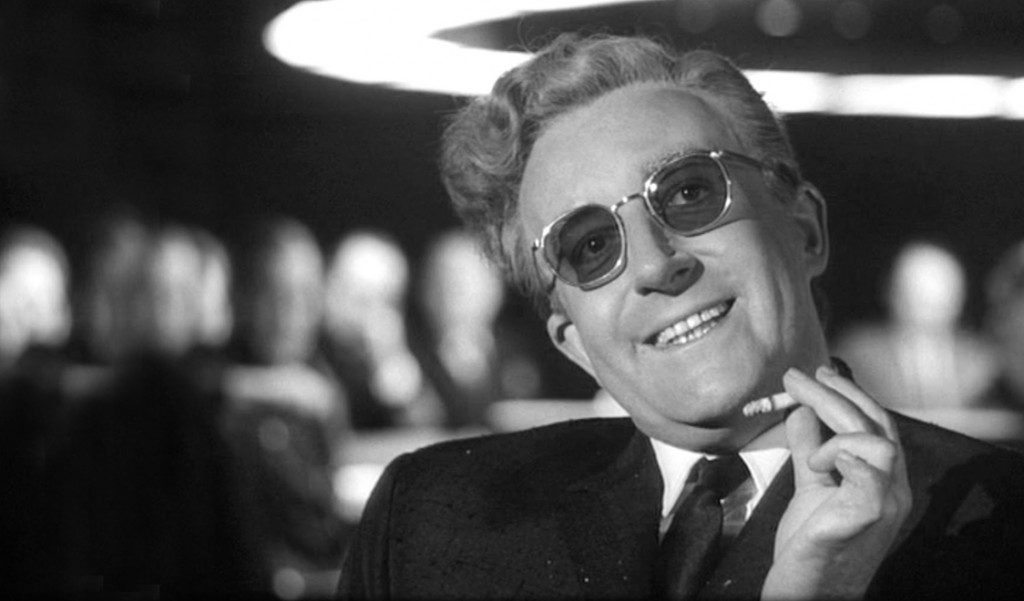
Only a deranged genius like Stanley Kubrick could craft something so terrifying, frightening and yet so hilarious and funny. The plot of ‘Dr. Strangelove’ shouts nihilism; a U.S Air Force general impulsively orders a nuclear attack on Russia without letting his superiors know about the mission. ‘Dr. Strangelove’ is Kubrick’s funniest film and one of the most critically acclaimed movies of all time. It mocks the madness reeling under the disguise of governmental authority and power. The comedy is shrewd and the Kubrickian sense of madness pervades the film with a much needed eccentricity that plays brilliantly with the narrative. Arguably the best nihilistic comedy ever made in cinema.
Read More: Best Hipster Movies of All Time
11. Fear and Loathing in Las Vegas (1998)

Terry Gilliam’s ‘Fear and Loathing in Las Vegas’ is the kind of film that grows on you. Most people hated it when it was released back in 1998 and many couldn’t possibly stomach the underlying themes in the film. But like all great films, ‘Fear and Loathing in Las Vegas’ stood the test of time and has gone on to become a cult classic. It follows a journalist and his lawyer who venture into a frenzied, psychedelic Las Vegas and get indulged in a variety of recreational drugs. Gilliam brilliantly manages to infuse nihilistic tones in the film, capturing the absolute nothingness of his characters and the angst and defeats of an entire era at its heart. Gilliam creates a sense of emotional detachment from his characters that works brilliantly with the tone of the film and uses the city of Las Vegas as a metaphor to mock the American Dream in its entirety.
Read More: Brain Teaser Movies With Answers
10. Naked (1993)
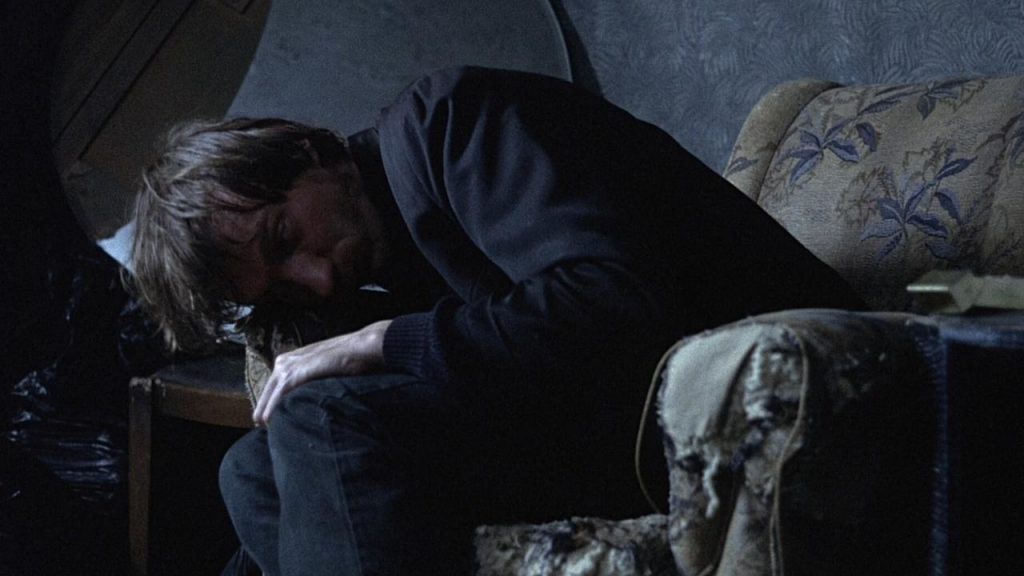
Mike Leigh’s ‘Naked’ is an underrated masterpiece that is hardly talked about. It’s a staggering piece of pure, uninhibited, thought-provoking cinema that floored me with its brutal honesty. It strikes the philosophy of nihilism at its core. Themes of violence, rage, existentialism run through the film. We have one of the most interesting characters in Johnny Fletcher; a man who hates women, himself, the people around him and every substance that encompasses his claustrophobic existence in the world. Complimented by a brilliant performance by David Thewlis, the character manages to come across as incredibly convincing and believable despite how despicable his actions may suggest or obscure his state of mind may seem.
Read More: Best Kidnapping Movies of All Time
9. A Clockwork Orange (1971)
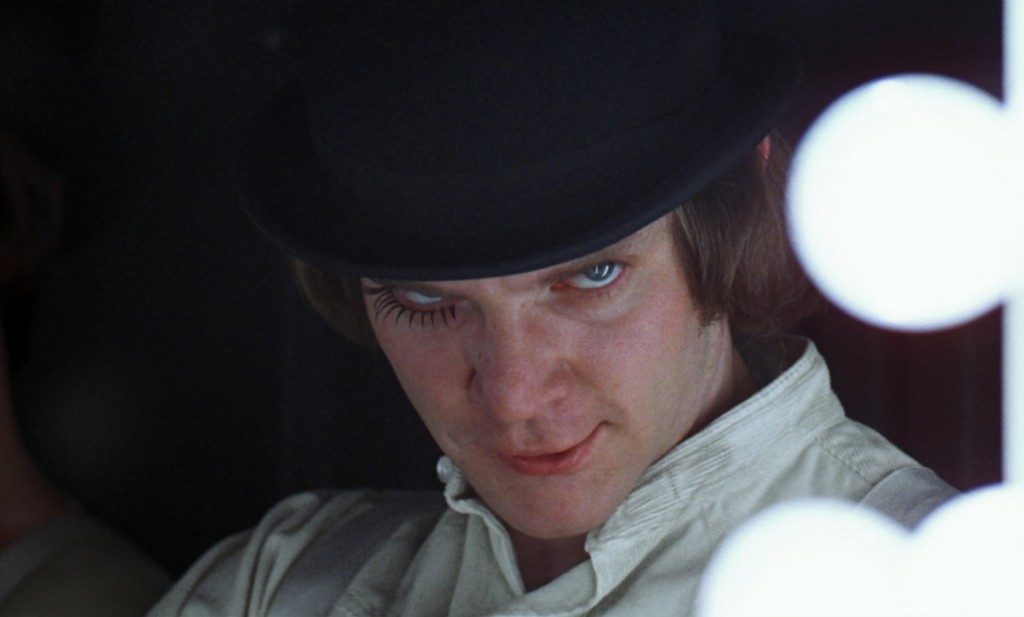
Stanley Kubrick’s dystopian masterpiece is a bizarrely twisted and tasteful take on nihilism that delves into a wrecked mind, exploring the mayhem and chaos inherent in the human psyche. There is nothing quite like a Stanley Kubrick film. And ‘A Clockwork Orange’ embodies every element of Kubrick’s distorted sense of humour that may initially seem tough to get into but before you realise, it just claws its way on to you. Thematically, the film has stood the test of time. The world around is unapologetic. People like Alex DeLarge are everywhere, smothering our existence, breathing the same air as us. The twisted minds of our system makes and destroys people like Alex. And in a nihilistic society such as this, no good will come for there is no cure for the human soul and ultra-violence would live on.
Read More: Best Directorial Debuts of All Time
8. Dogville (2003)
Lars Von Trier. The name just had to come up. Very few contemporary filmmakers are as daring, audacious and experimental as him. ‘Dogville’ is a true work of art and a towering achievement that boasts of his cinematic genius. Like most Von Trier films, the film has a protagonist thrown in a world with no sense of morality and where nothing but evil and brutality thrive. Trier uses a theatrical set design to depict the life of a woman who, after escaping from a gang of mobsters, arrive in a small village called Dogville. Von Trier’s approach is excessively dramatic and in-your-face but is way too affecting on a psychological and emotional level. This is a sorry world of no hope, no goodness and no warmth but only cold realities. And no matter how hard you try and look away, it comes back to haunt you and that is the kind of power an auteur like Von Trier possesses.
Read More: Best Movie Monologues of All Time
7. Irreversible (2002)

I could never express the kind of emotions Gaspar Noe’s ‘Irreversible’ made me go through. But let me try it; disturbing, terrifying, exhilaration, pain and sadness. A couple enjoying their lives. The woman gets raped. The guy is desperate for revenge. But his friend ends up killing the wrong guy. The man who raped the woman gets away. This is just as nihilistic as cinema can get. Noe brilliantly uses a reverse chronological structure for the narrative as the film’s poetic descendence from being absolutely terrifying and shocking to that closing shot, brimming with optimism is one of the most profound cinematic experiences you’ll ever have. Good guy loses, bad things happen but life moves on. And the more we accept the world as it is, the easier our existence becomes.
Read More: Best Drug Movies of All Time
6. Werckmeister Harmonies (2000)
You could just pick up the entire filmography of Bela Tarr and fill up half of the spots on the list here. The world that Bela Tarr crafts is enigmatic, haunting, mysterious and deeply nihilistic. There are no explicit references as to where the events in his films take place, creating a discomforting sense of realism that unveils the universal truths about an emotionally stranded society. ‘Werckmeister Harmonies’ shows a nihilistic world with hapless citizens torn up in despair and desolation. Tarr is someone who despises the idea of stories and instead focuses here on capturing reality and the mundane existence of dejected human lives. ‘Werckmeister Harmonies’ is not an easy sit through and for any cinephile, could be a massive challenge but the way it resonates on an emotional level just makes you think of the kind of power this form of art possesses.
Read More: Best Holocaust Movies of All Time
5. No Country for Old Men (2007)
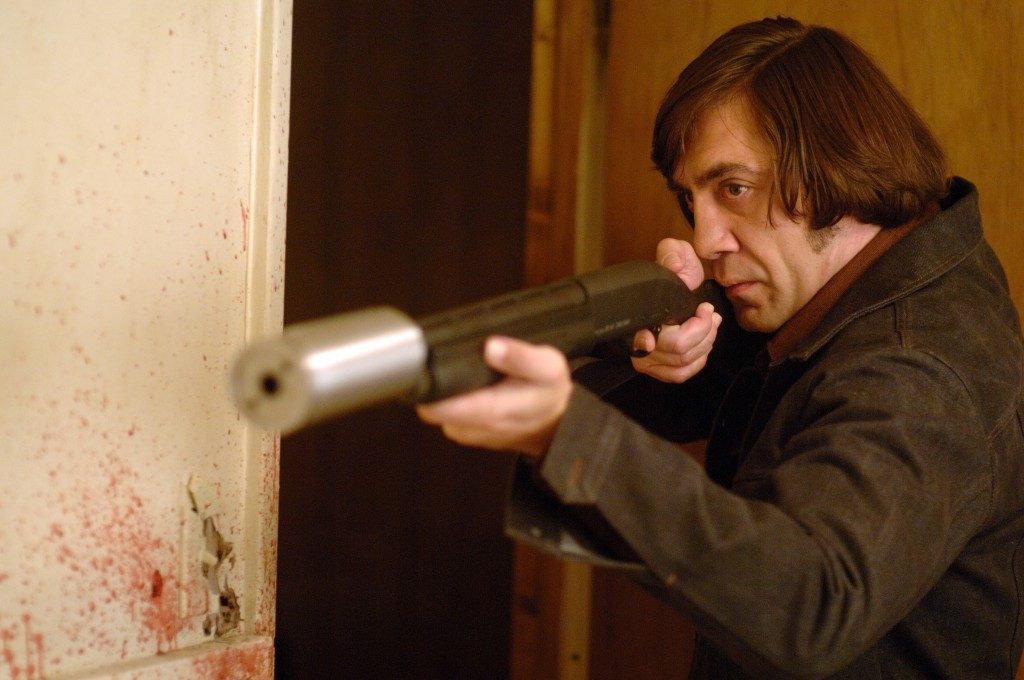
It takes a stroke of genius to portray something so dark, so hopeless, so nihilistic in a beautiful, poetic way. And ‘No Country For Old Men’ was just the masterstroke that put the Coen Brothers on a different map. Nihilism has been one of the major themes in the Coens’ cinema but their early films were rooted more in explicit dark humour. This tonal shift in ‘No Country For Old Men’ worked brilliantly as we get a dark, unapologetic piece of pure nihilistic cinema. Anton Chigurh personifies the word evil and there’s a sense of subtle, ironic humour the Coens use here, showing us a land of immense beauty where the most brutal of human realities unfold.
Read More: Heartbreaking Romantic Movies of All Time
4. The Seventh Continent (1989)
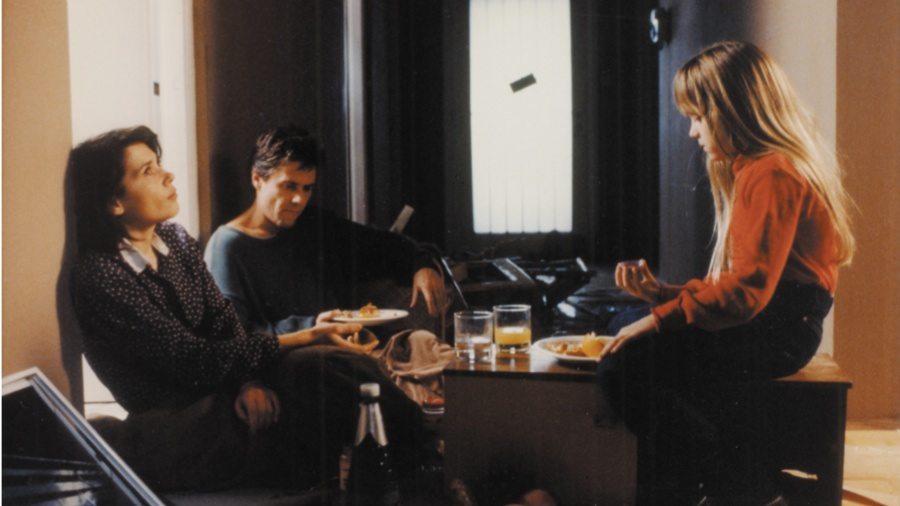
I could never agree with people who say Michael Haneke’s cinema is very unemotional. On the surface, his films may seem cold with no dramatic flashes of plot-revelations but the impact begins to hit only after the curtains have come down and you sit there in the comforts of your cushions, wondering about the kind of extremes human minds go to. ‘The Seventh Continent’ explores existential nihilism through a family, desolated and drained out by the sheer mundanity and superficiality of life in modern society. These are people who desire nothing more, aspire nothing more and worst, feel nothing more. Love doesn’t seem to satiate anything. The world around looks miserable, pointless, materialistic, violent and insane. And now matter how obscure the emotions of the characters may seem, in the end, frighteningly enough, you do find yourselves relating to the characters because at some point or the other we’ve all gone through some sort of an existential numbness. And this is where ‘The Seventh Continent’ turns into an immensely powerful experience.
Read More: Best Serial Killer Movies of All Time
3. Funny Games (1997)
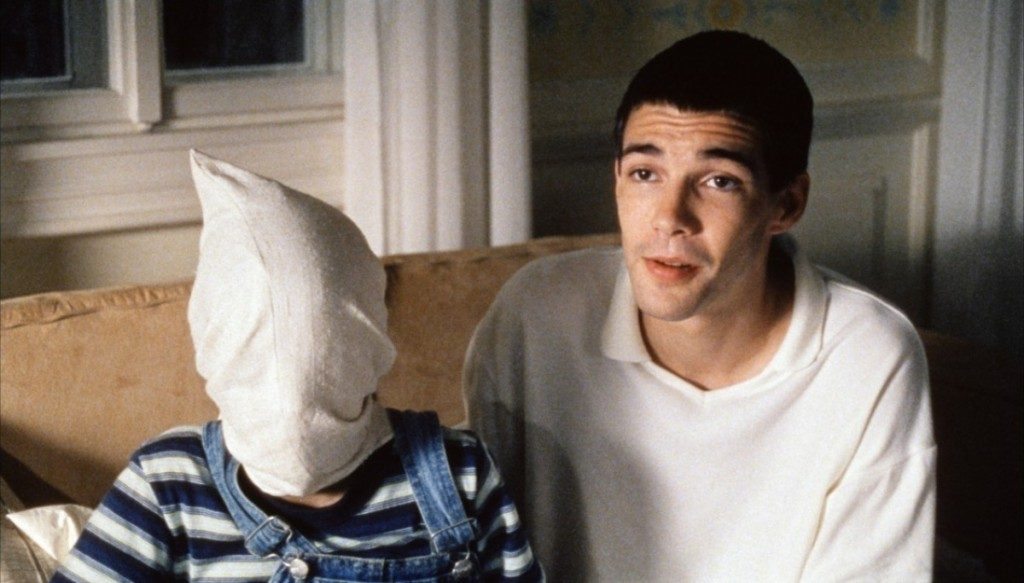
Michael Haneke’s romance with nihilism continues in this slasher satire about a family being tortured by two young men with their sadistic games. There is absolutely…I repeat, absolutely nothing good that happens in this film. On the surface, ‘Funny Games’ seems like a thriller. But it’s essentially a satire that takes the form of a thriller and then goes back to mocking the genre itself. We have two young men, dressed in white, speaking in the most polite manner you could ever imagine. But the things they do are inhuman and insensible. Haneke uses these sick minds to mock violence depicted in the media and mainstream Hollywood cinema. Killing does not mean anything for them and they remain indifferent to committing the most brutal acts, reflecting our own desensitisation towards violence depicted in cinema. ‘Funny Games’ is an explosive piece of pure provocative cinema.
Read More: Best Conversational Movies of All Time
2. Dancer in the Dark (2000)
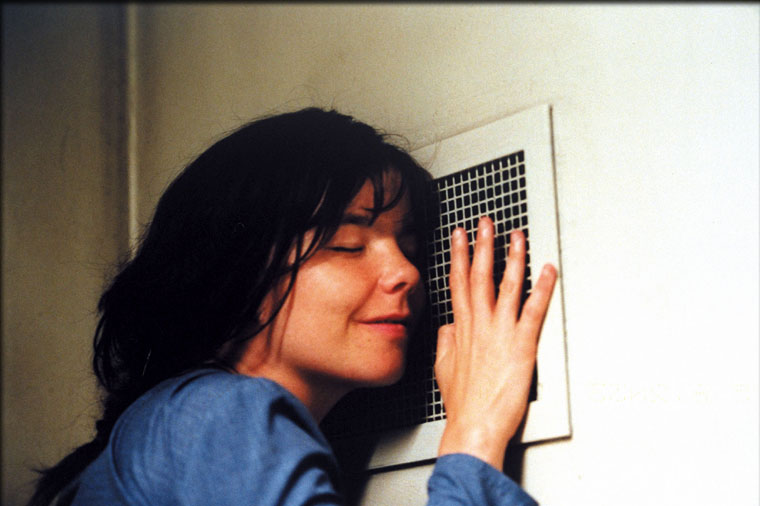
Lars Von Trier is a man you simply can’t ignore. Teetering on the edges of being genius and self-indulgent, his films are widely criticised for being provocative for the sake of being provocative. But there’s no denying that his best works are top notch and among the finest ever made in cinema. ‘Dancer in the Dark’ might just be his greatest film. It tells the story of a single mother, an aspiring singer, who is losing her eyesight and will have to prevent her son from suffering the same fate. Von Trier fuses melodrama to tell a very disturbing story of a dark society, steeped in nihilism. In a society where the term morality is alien to most people, the concept of good is futile and remains non-existent. Music paints a very dark sense of humour here, playing out the psychological imbalances of the protagonist.
Read More: Best Pirate Movies of All Time
1. Salo or the 120 Days of Sodom (1975)
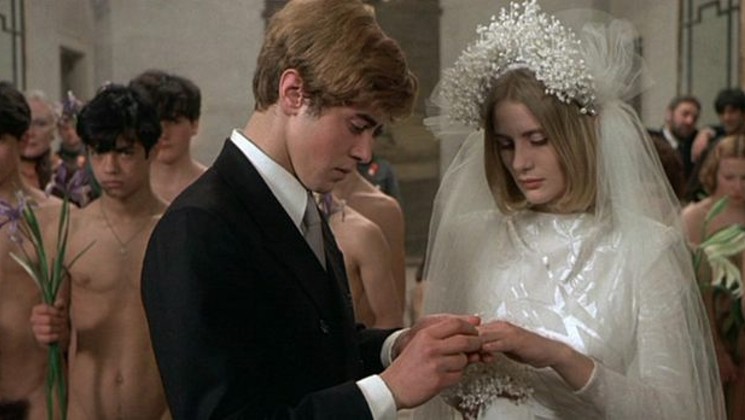
Pier Paolo Pasolini’s magnum opus is the mother of all nihilistic cinema. Released in 1975, just weeks before Pasolini’s tragic murder, the film generated a huge amount of controversy due to its explicit depiction of violence, brutality and sadism. The film depicts a fascist society that revels in nihilism, drunk on power and authority with nothing remotely resembling any elements of humanity. It focuses on four fascists who kidnap a group of young boys and girls and subject them to months of extreme physical and mental torture. Viscerally affecting and thematically opulent, ‘Salo’ is one of the most powerful cinematic experiences that could, for better or worse, change your life. Modern auteurs like Michael Haneke and Gaspar Noe continue to cite the film as one of the biggest influences in their works.
Read More: Best Violent Movies of All Time

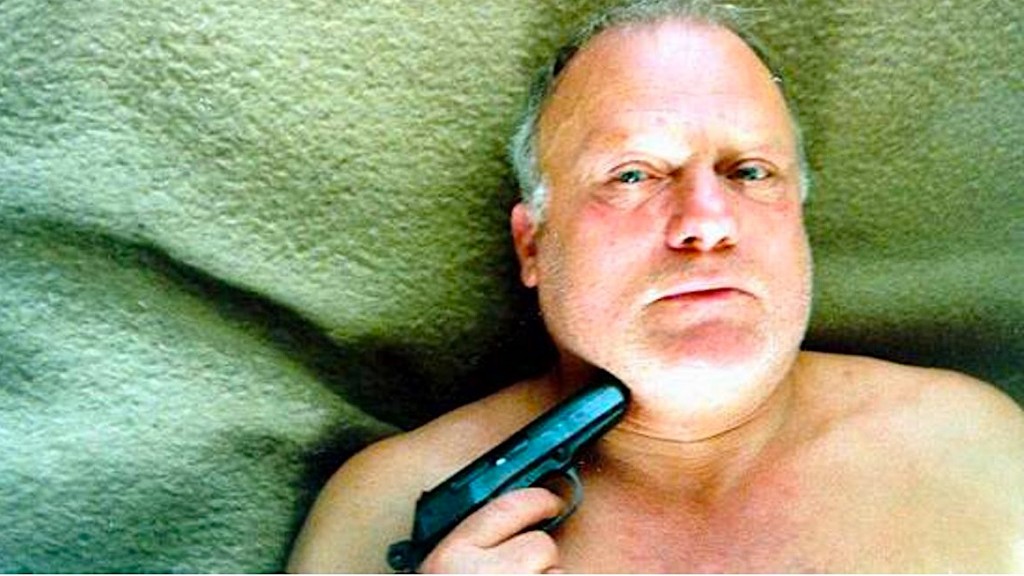
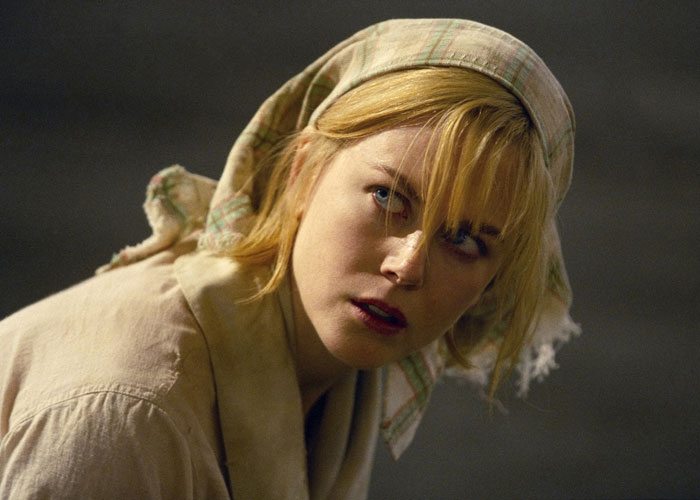
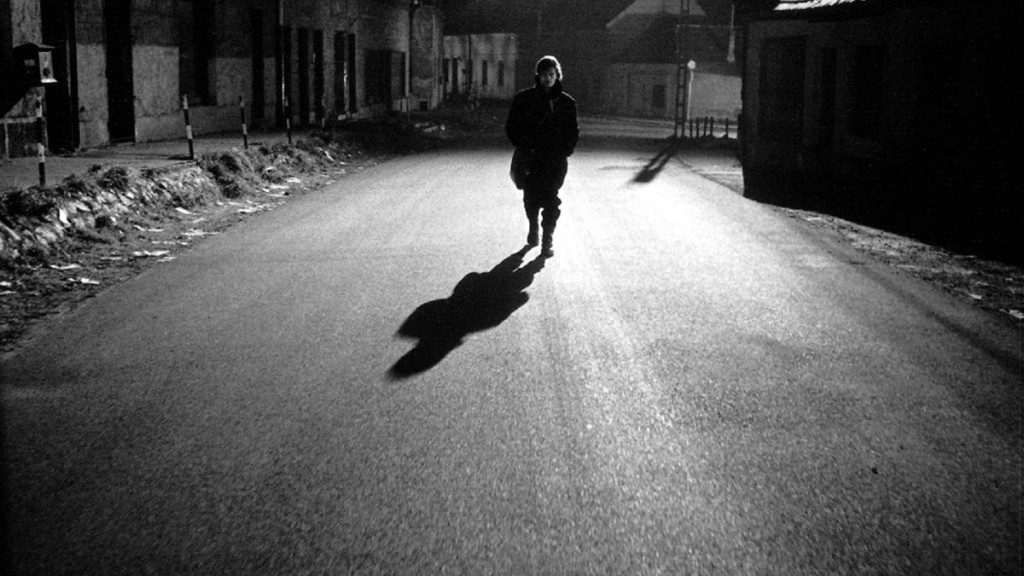
You must be logged in to post a comment.